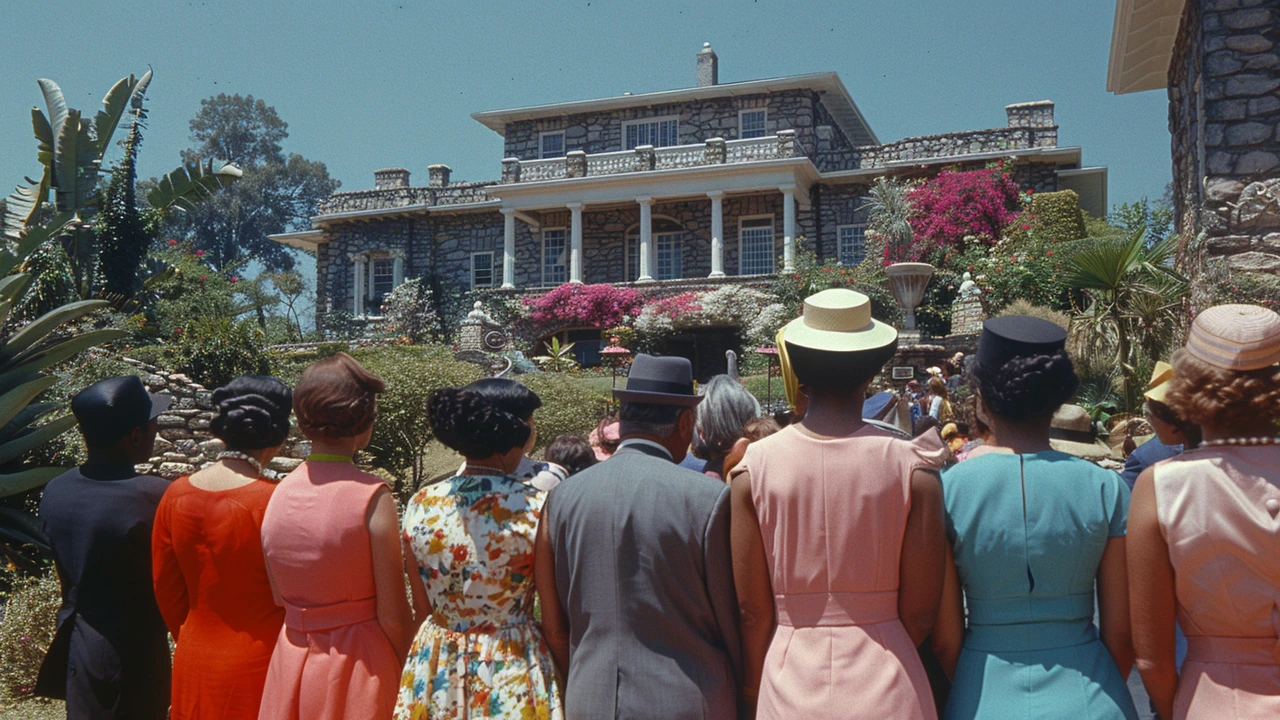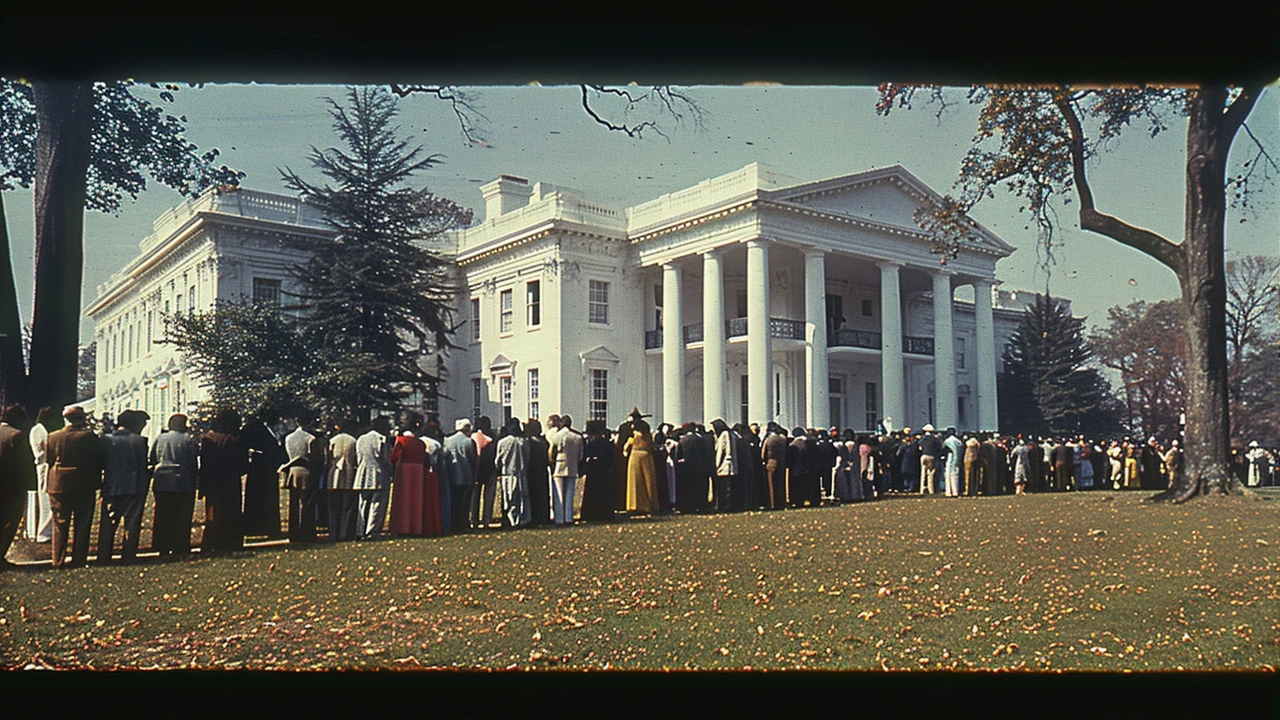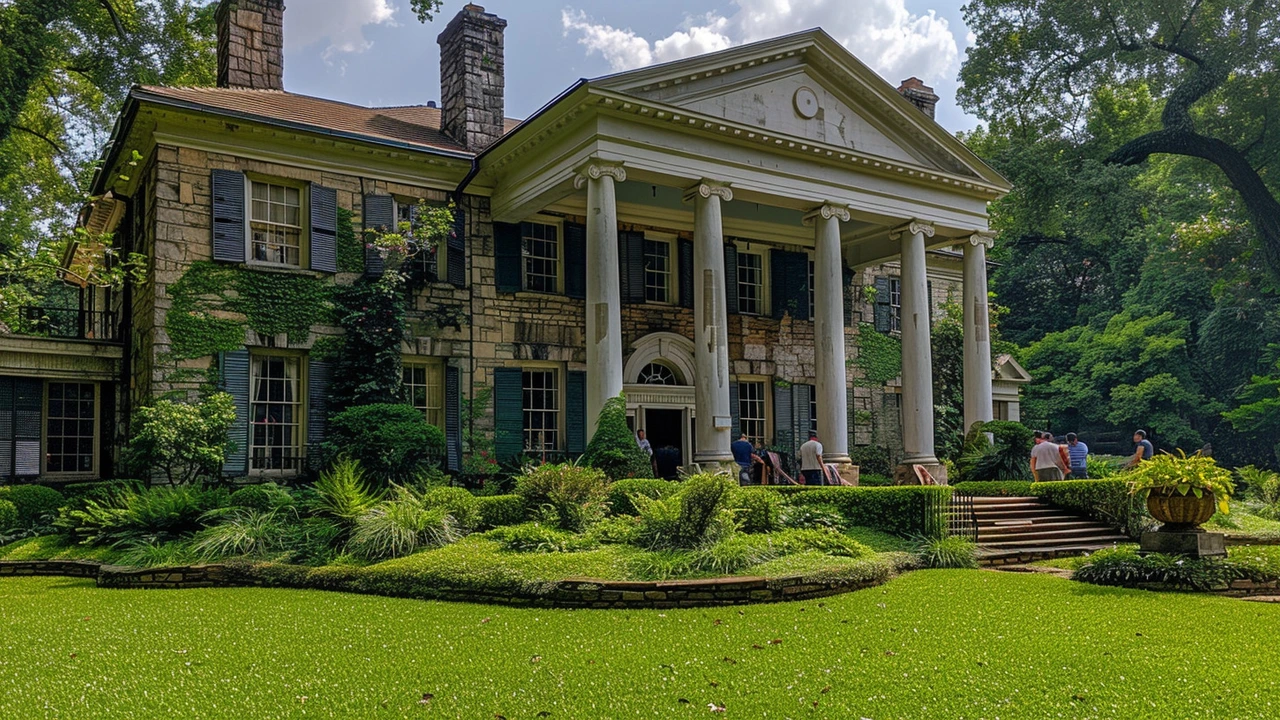Tennessee Attorney General Probes Attempted Graceland Foreclosure amid Fraud Allegations

Introduction
In a dramatic series of events that has captured national attention, Tennessee Attorney General's office is now probing a contentious attempt to foreclose on Graceland, the legendary home of Elvis Presley. This legal battle was ignited when Nausanny Investments and Private Lending sought to auction off the iconic Memphis estate due to an alleged default on a substantial loan. Riley Keough, granddaughter of the King of Rock ‘n’ Roll, has stepped into the fray to protect her family's heritage, slapping the investment company with a lawsuit that accuses them of fraud.
The Foreclosure Attempt
The tumultous affair began when Nausanny Investments claimed that Lisa Marie Presley, the late daughter of Elvis Presley and the erstwhile owner of Graceland, had defaulted on a loan from 2018, using Graceland as collateral. According to Nausanny, the Promenade Trust, responsible for managing the Graceland museum, owed $3.8 million as a result of an unpaid loan. Public notices were issued announcing a foreclosure auction of the sprawling 13-acre estate. This news sent shockwaves through Memphis and reverberated across the nation, raising eyebrows over the future of a property that attracts hundreds of thousands of tourists each year.
Riley Keough’s Legal Battle
As heir to the Presley estate following her mother Lisa Marie's death last year, Riley Keough moved swiftly to protect her family legacy. Riley’s lawsuit outlines her allegations that Nausanny Investments presented fraudulent documents to justify their claim. Keough’s lawyer vehemently asserts that Lisa Marie never engaged in any financial dealings with Nausanny Investments, nor did she offer Graceland as collateral. These claims of forgery, if proven true, add a chilling layer of criminality to something already steeped in controversy.
Judicial Intervention
Suspense peaked as a judge granted a temporary injunction this past Wednesday, thwarting the foreclosure auction scheduled for Thursday. This move provides Riley Keough and the Presley estate a much-needed respite to contest the allegations in due legal process. For its part, Nausanny Investments has indicated a willingness to abandon their claim, mollifying some immediate tensions but not halting the ongoing legal scrutiny.

Attorney General’s Role
The Tennessee Attorney General holds a significant position in this unfolding drama. Empowered to investigate and file civil lawsuits in cases of consumer fraud, the office's intervention could help untangle the web of allegations. While their criminal jurisdiction is somewhat restricted to handling the state’s appeals, their influence in consumer fraud cases is considerably potent. This investigation could hence serve as a crucial turning point.
The Immense Value of Graceland
Preserved not just as a monument to Elvis Presley’s life but also as a valuable cultural asset, Graceland is more than merely a house. This estate has become an iconic tourist destination generating significant revenue and attracting fans from every corner of the globe. As a center of pilgrimage for Elvis enthusiasts, it holds unfathomable sentimental value for the Presley family.
Wider Implications
The implications of this case extend beyond the Presley estate and the financial dealings surrounding Graceland. Fraudulent foreclosure claims can shake the foundations of trust within the real estate market. They serve as a grim reminder of the potential vulnerabilities inherent in property ownership, even for something as unmistakably significant as Graceland. The legal precedents set here could resonate within Tennessee and potentially influence broader realms of property law.

Public Reaction
Understandably, the public has vested a keen interest in the unfolding saga. Fans and local residents alike are unified in their support for Keough’s legal efforts to preserve Graceland. The estate represents a palpable piece of cultural history. Losing it to underhanded financial dealings would be more than just a significant real estate loss; it would be a tear in the fabric of American musical heritage.
A Tale of Legacy and Legal Battles
This is not merely a fight over land or money; it is a struggle to protect an enduring legacy. Graceland represents a chapter of American history, and its preservation is fundamental to the cultural landscape of the country. Riley Keough’s resilience shines through as she navigates complex legal challenges to safeguard her family’s name and heritage. The reverence with which the public holds this estate only underscores the high stakes involved in this embattled property skirmish.
Conclusion
As investigations continue and the court proceedings unfold, the fate of Graceland hangs in a balance. For now, a judge’s injunction and the legal prowess of Riley Keough offer a bulwark against immediate threats. But this case serves as a potent reminder of the intricate and often perilous intersections between heritage, finance, and law. The vigilant oversight by Tennessee’s Attorney General provides some level of assurance that justice will ultimately prevail.
All eyes remain on Graceland, watching as legal battles dictate the future of one of America’s most treasured landmarks.
5 Comments
Lemuel Belleza
This whole thing feels like a circus.
Subhash Choudhary
Honestly, it’s wild seeing a piece of music history get tangled up in a finance mess. I’m just watching from the sidelines, hoping the legal system sorts it out without too much drama. It’s a reminder that even legendary estates aren’t immune to modern money problems.
Ethan Smith
The points you raise are well taken; the intersection of cultural heritage and financial instruments often creates complex legal terrain. Precision in documentation is crucial, especially when dealing with assets of such public significance. A clear, legally sound approach will benefit both the Presley family and the broader community that cherishes Graceland.
Evelyn Monroig
Everyone’s quick to cheer the Presley family, but the real story is the shadow network of lenders that thrives on exploiting iconic properties. These investment firms operate in a gray zone, pushing dubious claims while hidden shareholders reap the rewards. It’s no coincidence that the Attorney General’s office suddenly shows interest; they’re probably being nudged by larger forces that want to keep the market under control. The public narrative masks a deeper erosion of property rights for anyone without elite connections.
faye ambit
When we consider the broader implications of this case, several layers emerge that merit thoughtful reflection.
First, the intertwining of cultural heritage with financial instruments forces us to question how society values intangible assets versus monetary obligations.
Second, the legal mechanisms designed to protect consumers must adapt to address the unique vulnerabilities of historic landmarks, which cannot simply be reduced to balance sheets.
Third, the involvement of the Attorney General underscores the importance of state oversight in preventing predatory practices that threaten collective memory.
Moreover, the public’s emotional investment in Graceland illustrates how communal identity can become a lever in legal disputes, potentially swaying outcomes beyond pure jurisprudence.
It is also essential to recognize that the alleged fraudulent documents, if proven true, would set a dangerous precedent for how financial entities might fabricate claims against any culturally significant property.
The ripple effects could extend to museums, historic districts, and even indigenous heritage sites, eroding trust in the safeguarding of our shared past.
In addition, the swift injunction demonstrates the power of timely legal intervention, reminding us that procedural safeguards remain a critical line of defense.
Nevertheless, the case also highlights the need for clearer statutes that delineate the responsibilities of lenders when collateral involves heritage assets.
From a societal perspective, the collective outcry in support of the Presley family signals a desire to preserve not just a house, but an emblem of a particular era of American music and culture.
That sentiment should inform policymakers as they craft legislation that balances private property rights with public cultural interests.
Finally, the episode serves as a cautionary tale for all stakeholders: transparency, accountability, and respect for historical significance must be embedded in any financial arrangement involving such treasures.
By fostering an environment where heritage is protected from exploitation, we safeguard both our past and the moral fabric of our legal system.
In sum, the Graceland saga is more than a courtroom drama; it is a microcosm of the tensions between profit motives and the preservation of cultural memory.

Write a comment